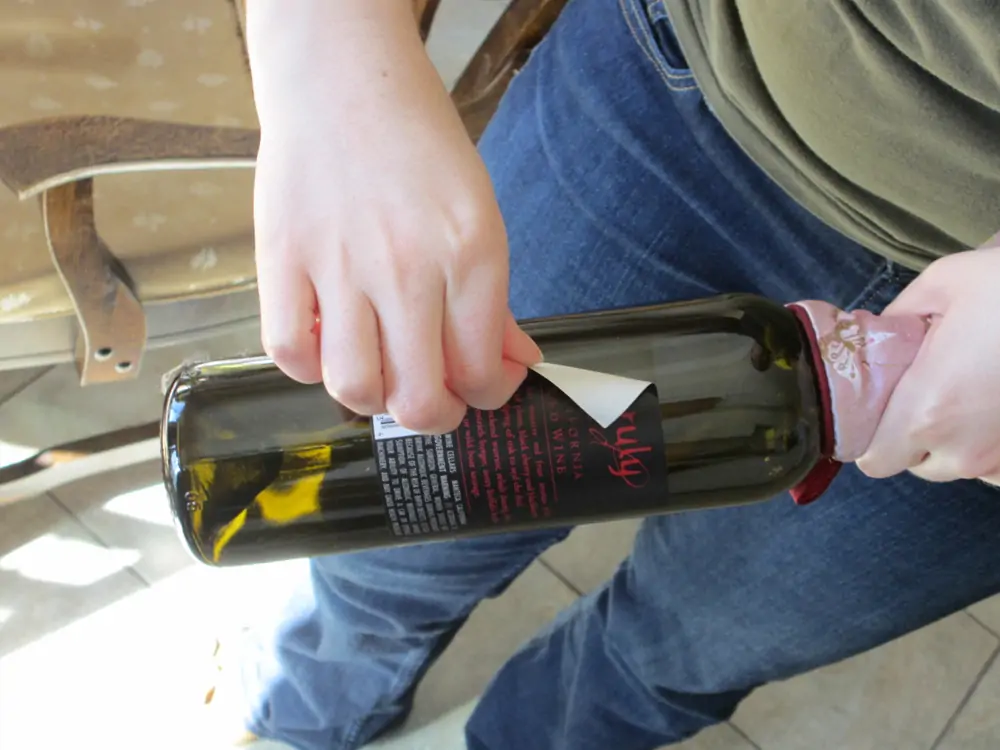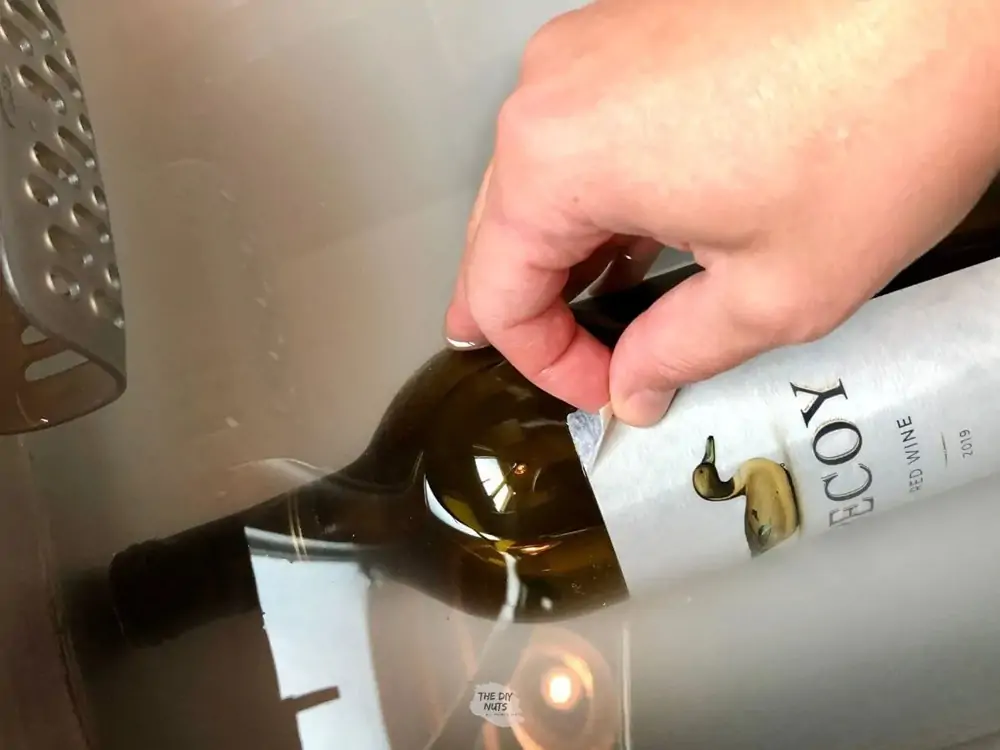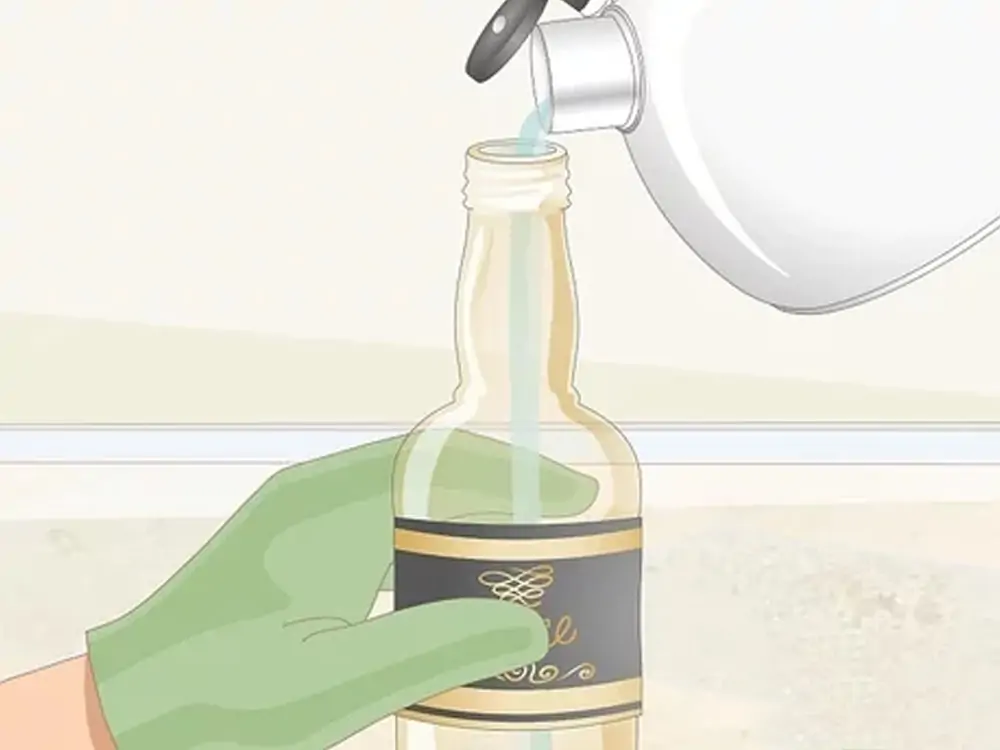 Home > News
Home > NewsRemoving wine labels can be done for different reasons. For instance, a person might collect them in a scrapbook to create a fun, sophisticated aesthetic. Meanwhile, another wine enthusiast might use some labels to decorate a tasting room or create a wine collage. Likewise, another could be holding on to precious memories from a special occasion, like a naming ceremony or a wedding. However, regardless of what motivates your decision, this post is here to aid your collection. We will reveal the best way to remove labels from wine bottles. The steps below will show you how to remove wine bottle labels without damaging them.
Usually, people discard and recycle their empty wine bottles without a second thought. Therefore, they neglect their usefulness. If you pull and peel the wine label, the result will be tearing and irreparable damage. This is why you need to learn the steps to properly remove a label to have a perfect wine label worth saving. Exploring the usefulness of wine labels, they sell for reasonable prices on platforms like E-bay. To crafters and wine enthusiasts, wine labels are fascinating objects used for various purposes. Additionally, private-label winemakers can reuse old wine labels in their manufacturing process.
Before removing your label from your wine bottle, you should find a safe place to store and prevent it from possible damage. Often, after parties, people throw their wine bottles into the waste bin, which increases their chances of damage. If you intend to retrieve the wine label later on, it will be quite difficult, especially if the bottle has cracks and physical damage. Another thing to consider is the type of label on the wine bottle. This knowledge will help you decide on what method to use in removing labels from wine bottles.
Determining the type of label on your wine bottles is essential, as it makes choosing a removal method easier. Permeability is a critical factor to consider. Labels and stickers made from plastic are less permeable to water. This trait makes it more suitable to remove them with blades, and other physical methods, including heat. In contrast, paper labels absorb water more readily, making water a perfect agent for removal. Different polymers, including water-based glues and pressure-sensitive adhesives, attach labels to wine bottles. If you aren’t an adhesive expert, you can visually inspect what glue was used to attach the label. After your inspection, you can select the most suitable removal method for your label. Use a knife or razor blade to lift a corner of the wine label by just a quarter of an inch to examine the gluey substance. If the glue substance looks like traditional glue, you can use a water-based or detergent method. Use physical methods like peeling or heat application if the adhesive seems like a sticker.
Generally, there are two methods for getting labels off wine bottles. These are the dry and wet methods.

The dry method involves removing wine bottle labels without submerging the bottle in water.
Using the label lift method is the best option for people who want to keep their wine labels in a wine journal or as a part of a photo collage. A labeled lift is a plastic sheet with an adhesive that blankets the wine label and sticks to its surface. You can only buy label lifts in packages with 10 to 50 pieces. As a result, they are expensive, so you should practice on beer bottles first.
Label lift
Spoon
Carefully apply the label lift over the wine label.
After that, rub the lift for about two minutes using the back of the spoon.
Now, peel off the label.
With a pair of scissors, trim the edges of the label for a neat appearance.
Get your wine journal and add your intact wine label.
Many people will agree that using an oven is the best way to remove labels from wine bottles. It is a perfect way to retrieve your label without damage.
Before placing your bottle inside the oven, ensure that it is empty and devoid of the bottle cover or cap.
Oven
Oven mittens
Razor blade or a knife
Firstly, preheat your oven to about 350 °F for 5 minutes.
After that, put your bottle on a baking dish. This stops it from falling or rolling around in the oven.
Leave the bottle inside for about 10 minutes. The adhesive on the label will melt gradually.
After 10 minutes, remove the bottle from the oven and inspect the label.
Now with your blade or knife, gently peel the label starting from the edge.
After separating the label for the wine bottle, allow it to dry before using it.
Steaming is an excellent way to remove a label without dipping the bottle in water.
Pot or kettle
Water
In a large pot or kettle, boil water for about 15 minutes or until steam forms.
Then hold the empty wine bottle over the steam, and rotate it to expose all areas of the label.
Make sure you’re wearing a pair of gloves to protect your hands from the steam.
Now you can peel off the label with a blade or knife.
Start from the edge and gently lift off the label after it loosens. It should separate from the bottle in one piece.
However, if the label fails to loosen, hold it above the pot/kettle for another 15 minutes.
After removing the label, allow it to dry overnight. Let the adhesive side face upwards as it dries.
The chill and steam method is a less effective method on how to get labels off wine bottles.
This is comparing it to using an oven or steaming.
Freezer
Steamy humid room
Knife
For about 25 minutes, place your wine bottle in the freezer.
Take it out and leave it to sweat in a steamy humid room for 30 minutes.
After sweating, use your hands or a knife to carefully peel it off.

Wet methods for how to remove labels from wine bottles are suited for both full and empty bottles. To clarify, this method is suitable for water-permeable labels that are attached to the bottle using traditional glue.
This essential household ingredient is one of the best way to remove labels from wine bottles. The baking soda technique is the most effective way to remove labels from full wine bottles without affecting the wine quality.
Sink or bucket
Baking soda
Towel
Rag
Optional steel wool
Firstly, add 5–10 tablespoons of baking soda to warm water and soak your wine bottle in the mixture for about 30 minutes.
After that, your label should float on the surface of the water.
However, if it doesn’t float, take out the bottle and wipe the label off with a rag.
If the label still doesn’t come off, use steel wool to separate it from the bottle.
Make sure the wine label is completely dry before you use it.
You can use Oxiclean and Ajax as an alternative to baking soda
Similar to the baking soda technique, the ammonia method is an excellent way to remove labels from wine bottles. However, different from baking soda, ammonia has a strong odor. Therefore, ensure that you use this removal method in a well-ventilated place.
Household ammonia
Water
Small bucket
Gloves
In a bucket, add water and a quarter of household ammonia.
After that, mix the solution gently and properly.
Place the wine bottle inside the mixture, cover it, and leave for thirty minutes.
While wearing your gloves, remove the label from the wine bottle.
If you want to save the bottle, wash its outer surface with cold water to remove the residues.

Using hot water is one of the easiest ways to remove wine labels from empty bottles. You can either fill the bottle with hot water or soak it directly. However, take note that soaking your bottle in extremely hot water will discolor the labels.
Hot water
Gloves
Towel
Sink or bucket
Steel wool
Use a kettle to fill your wine bottle with hot water. But before you pour the water, make sure that the bottle has soaked in it.
This is to prevent the bottle from cracking or breaking due to the sudden temperature change.
Let the hot water stay in the bottle for 10 minutes.
Most importantly, put on your gloves before handling the hot glass.
After that, use the steel wool or your fingers to peel off the label.
Although removing labels from wine bottles can be tricky, the results from doing a good job help you preserve your labels for future use. For instance, wine labels can be used in scrapbooks and wine journals. In addition, they can be used as decorations for your house or a tasting room. The methods above are only a few percent perfect. You have to find the best method suited to your needs. However, you can be certain that there is a way for every wine enthusiast to preserve their labels either with the methods listed above or by using other techniques.